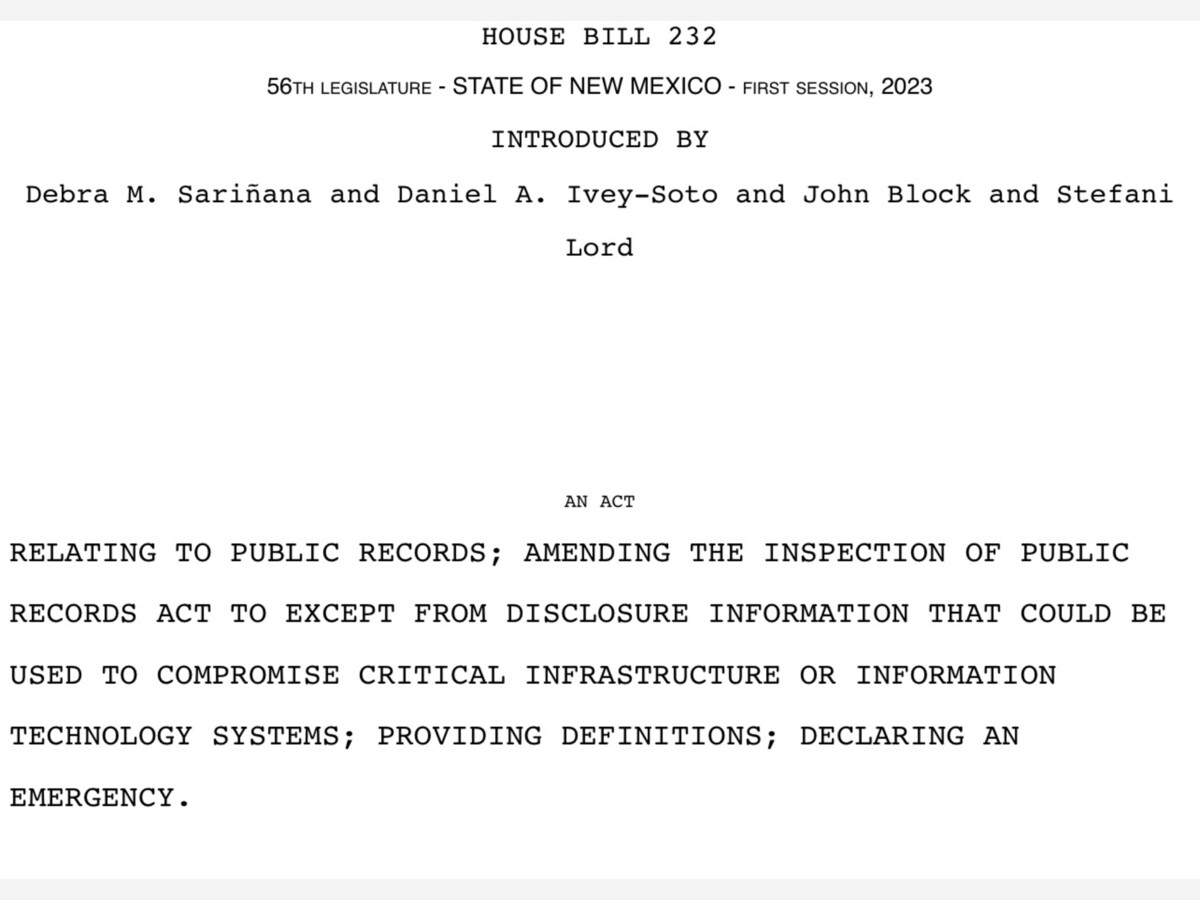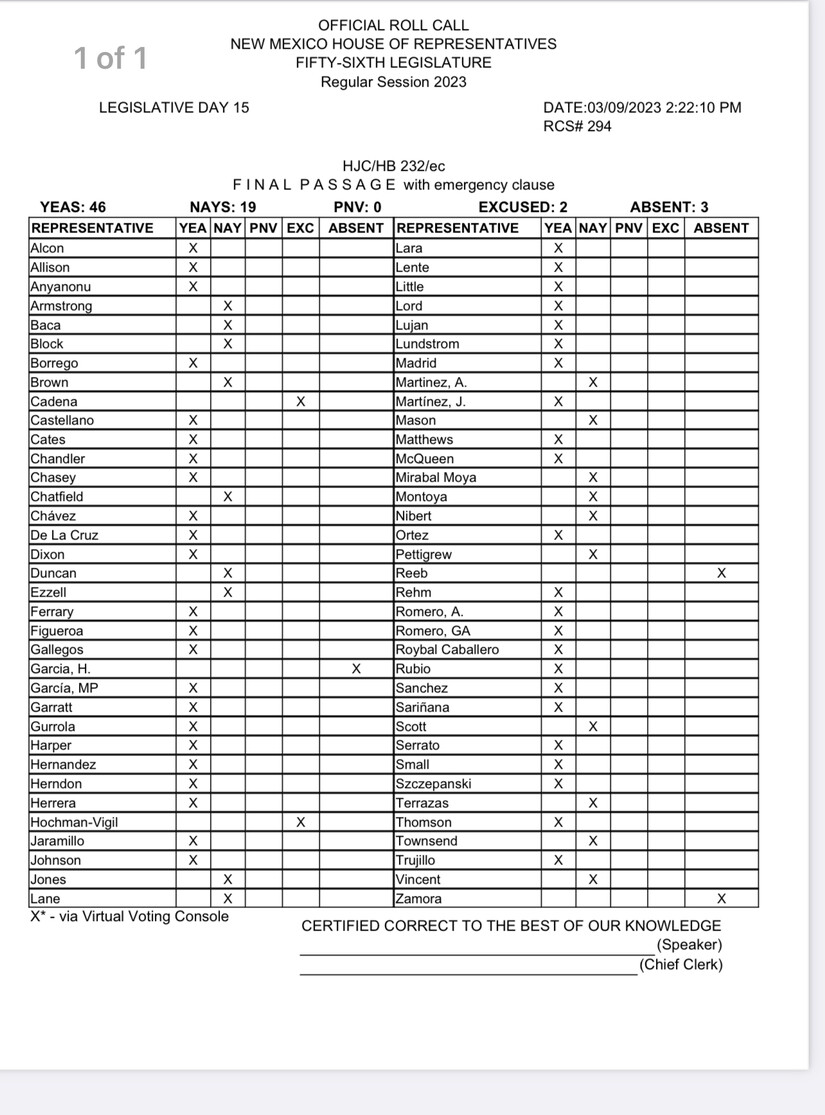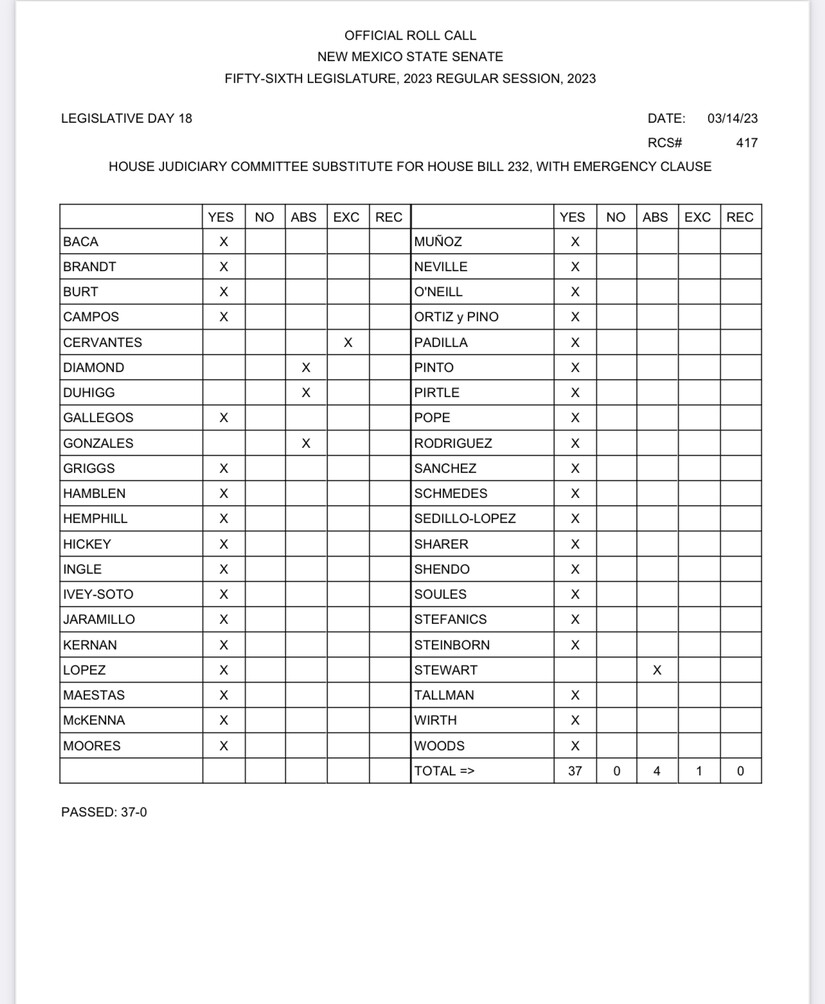Image


Madrid, Burton and Griggs voted to protect victim’s identity and Sensitive infrastructure, John Block sponsored the bill then voted Nay.
During the most recent session HB232 expanded the list of records that are exempt from inspection to include additional information about victims of certain crimes—particularly crimes involving stalking, assault, and sexual contact or exploitation—visual and audio depictions of harm, death, or body parts, and other records or depictions that could place a victim or their family members at risk of exploitation or further harm. These new exemptions cover additional records and information that could interfere with the effectiveness of an investigation and provides additional protections to victims without exempting records pertaining to offenses committed by officers, such as death or bodily harm, which can improve transparency regarding officer conduct.
Further, requiring an individual to have information regarding the offense, such as a police report number, before information will be released regarding a victim or crime provides additional protections.
A flaw in the law that should have been addressed…
However, nothing in the bill seems to change the information protections regarding the Arrest Record Information Act: [Under existing law,] the law enforcement records exception does not protect information subject to disclosure under the Arrest Record Information Act (NMSA 1978, §§ 29-10-1 to -8). This includes records identifying a person who has been arrested. In addition, information contained in posters, announcements or lists for identifying or apprehending fugitives or wanted persons; court records of public judicial proceedings; records of traffic offenses and accident reports; and original records of entry compiled chronologically, such as police blotters, are required to be available for public inspection.
However, the law is a good step in protecting IT and a first step in victim identification prevention.
The new law says that the government is not required to release public records about IT systems that reveal vulnerabilities in the system. That addition to the law comes after several attacks on public tech systems, such as a cyberattack on Albuquerque Public Schools earlier this year.
The law also now adds to the info that law enforcement can redact before releasing records. Before the change, law enforcement was allowed to redact things such as information that could reveal confidential information. Now, the list of potential redactions also includes visual depictions of dead bodies or visual depictions of great bodily harm unless that harm is suspected to have been caused by a law enforcement officer.
The idea is to protect victims of crime, according to lawmakers. “I think this is a commonsense bill to protect people who are on those tapes,” Sen. Antoinette Sedillo Lopez (D-ABQ.) said during a final discussion of the bill on the Senate floor.
The new law says that in order to request police video or audio, the public has to include at least one of the computer-aided dispatch record numbers, the police report number, or the date (or date range) of the event with “reasonable specificity.”
One of the bill’s original sponsors was Alamogordo District Representative John Block. However when it came time to vote for this bill which is a first step in protecting sensitive state IT infrastructure and victims of crimes New Mexico State Representative John Block voted “Nay” against the bill.

Representative Willie Madrid that represents Chaparral in Otero County and Dona Ana County voted yes for the legislation. State Senators Burt and Griggs also voted yes for the legislation.
